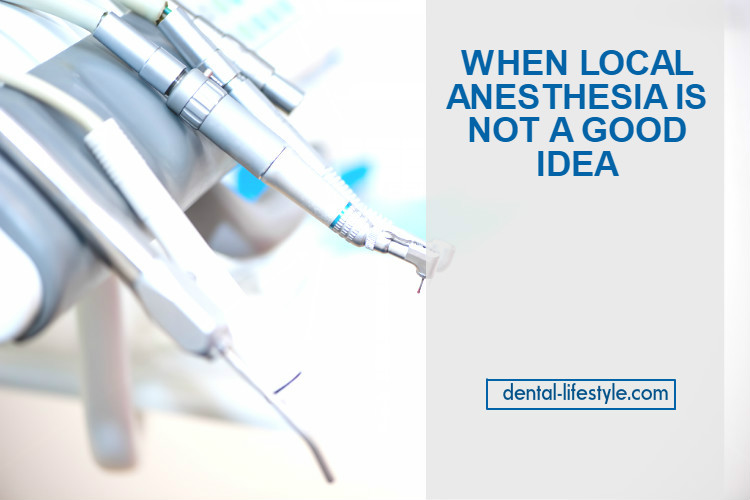For many local anaesthesia is a horror story. Not a few patients are afraid of the injection. Normally you shouldn’t. We use it to prevent severe pain from hitting you transforming your treatment into a living hell.So, it’s a good thing it exists!
But you have to be very careful and very specific with your dentist about your dental and medical status.
In the list that follows you can see some common contra-indications of local anaesthesia so that you can understand the importance of mentioning any of these to your dentist on your next visit.
1) Allergy
2) Cardiovascular diseases:
Vasoconstrictors included within the anesthetic solution are actually constricting your blood vessels so that the anesthetic will not diffuse from the injection site. This major advantage of vasoconstrictors can actually cause complications in patients with heart problems.
3) Hepatic dysfuntion:
Local anesthetic solutions end up in the liver where the undergo biotransformation. There are specific agents of the solution that will undergo this process and if the liver is not functioning properly this will cause more harm than good. Your dentist can use a solution with a different agent if you are suffering from liver dysfunction.
4) Renal dysfunction:
Drugs excreted by the kidneys may not be metabolized and cleared from the bloodstream quickly in case of such a dysfunction.
5) Pancreatic dysfunction:
Patients with diabetes mellitus Type-I and Type-II can generally receive local anaesthesia. A vasoconstrictor has to be included and the dosage should be kept to the minimum.
6) Hyperthyroidism:
In such cases it is better to avoid using a vasoconstrictor in the anesthetic solution since there are usually cardiac anomalies present.
7) Hypothyroidism:
Dosage should be kept to the minimum.
8) Infection:
When an infection is present at the site of the injection it is advisable not to proceed with the anaesthesia since the infection could be fertherly spread.
9) Methemoglobinemia:
Patients with methemoglobinemia or taking medications associated with this disease may be safely treated with local anesthetic injections, with or without vasoconstrictors. However, the dosage should be minimized and the use of prilocaine should be avoided.
10) Drug Interactions:
There are certain drugs that will interact with the local anesthetic solution and may cause unwanted complications.Make sure to inform your dentist about the usage of any prescriptions drugs.
11) Sickle Cell Anemia:
The use of vasoconstrictor-containing local anesthetics is considered safe as long as the dosage is limited to one to two cartridges.
12) Pulmonary Disease:
The most common pulmonary diseases encountered in the dental office are asthma, tuberculosis, and chronic obstructive pulmonary disease, which includes chronic bronchitis and emphysema. While the status of tuberculosis infection in a patient is of the utmost concern to dental practitioners, and the patient’s infection must be under control before elective dentistry is done, it possesses no implications with regard to the use of dental local anesthetics.
Athina Tsiorva


